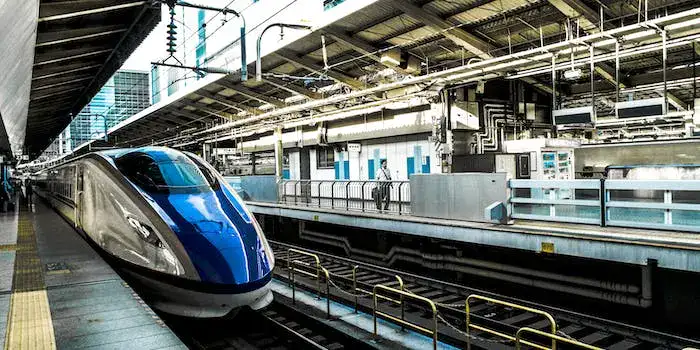As someone who travels frequently, I have seen firsthand on how technology revolutionized the transportation industry. I am amazed at how technology has brought a new level of comfort in the way we travel from one place to another.
Technology in transportation is about the application of different technologies to improve the efficiency, safety, and sustainability of transport systems. It also includes information and communication technologies such as GPS systems and smartphone applications. Emerging technologies like electric vehicles and smart transportation systems are also considered.
In this guide, you’ll learn:
- Importance of technology in transportation
- Impact of technology on transportation
- Emerging technologies in the transportation industry
- Challenges of technology in transportation
Importance of technology in transportation
The importance of technology in transportation cannot be overstated since it has revolutionized the way we travel. It made the process faster and safer.
The market innovations that have been introduced in recent years have had a tremendous impact and have made the transportation experience more efficient.
In my experience, the use of technology in transportation has enhanced my everyday life.
It might be challenging to look for a ride while standing on the side of the road, frantically waving my hands in the hopes of hailing a cab.
However, the ability to instantly plan and pay for transportation using my smartphone is quite easy nowadays.
I no longer have to be concerned about the tension and uncertainty that used to accompany travel.
I believe that technology in transportation is incredibly important and it will continue to improve in the next decade, bringing more positive impact on the environment.
Impact of technology on transportation
Here is a list of the impact of technology on the transportation industry.
1. Create more sustainable modes of travel
With the growing concern for the environment, governments and private companies are investing in sustainable transportation.
One of the primary ways that technology has made transportation more sustainable is through the development of alternate fuel sources.
For example, the use of rechargeable batteries in electric cars has increased, decreasing dependence on fossil fuels and pollution.
If you’ve been updated on new tech trends in transportation, you would likely know about Tesla, it is the automotive company that’s behind the development of electric vehicles.
They designed a sustainable vehicle system that is massively scalable resulting in the greatest environmental benefit possible.
Furthermore, technological advancements have enabled the creation of new means of transportation, such as high-speed trains and electric bicycles, both of which are environmentally friendly and provide an alternative to traditional forms of transportation.
2. Increase connectivity while on the move
So far, this is one of the unique impacts of technology in transportation that I’ve seen and experienced.
The increasing availability of high-speed internet connectivity, coupled with the widespread use of smartphones, has enabled people to stay connected and entertained while on the road. Whether you’re in an air or land public transportation.
The widespread use of in-vehicle entertainment systems is one of the primary ways in which technology has boosted connectivity while driving.
These systems offer a variety of entertainment alternatives to drivers and passengers, including music, movies, news, and navigation information.
New cars today are also equipped with Wi-Fi hotspots, letting passengers connect their gadgets to the internet while riding.
Not only has technology improved land transportation, but it has also made it simpler for individuals to stay connected while flying.
Some flights now feature built-in Wi-Fi, allowing passengers to work, access the web, and remain in touch with loved ones.
3. It allows for shorter travel times
Most people are always in a rush that’s why when they travel, they want it short. Well, technology in the transportation industry has enabled shorter travel times and improved the overall experience of our travel.
By leveraging advances in technology, transportation providers can optimize routes, reduce congestion, and streamline their operations.
One example of a technology that has reduced travel time is the GPS navigation device. This device gives real-time traffic information to vehicles and allows them to avoid crowded regions. It also helps them discover the quickest route to their destination.
There is also a high-speed rail system today that has been developed in japan, this is the famous Shinkansen train which is equipped with modern technology and moves at incredible speeds.
4. Increased safety by reducing traffic accidents
Every time I travel, safety and traffic avoidance are two of the most significant factors that I try to consider because traveling can be stressful and risky.
The advancement of technology has increased safety by reducing traffic accidents.
A lot of vehicle companies today have equipped their product with advanced sensors and other safety technology to prevent accidents and make driving safer for everyone.
Another way that technology has increased travel safety is through advanced driver assistance systems.
This system monitors the road with a camera, radar, and other sensors and provides drivers with real-time information and alerts.
For example, if you’re driving and haven’t realized that you’ve drifted out of your lane, the system will inform you so you may correct it. The technology would also notify you if a crash was imminent.
5. Convenient booking and payment
Technology advancements in the transportation industry have transformed the way individuals plan and pay for their travels.
Booking and paying for a taxi, a rental vehicle, or a flight used to involve face-to-face interaction with a travel agency, a rental counter, or a cab driver.
Today’s technology allows you to schedule and pay for transportation services fast and conveniently using your smartphone or computer.
The opportunity to compare rates and alternatives from numerous suppliers in real time is one of the primary benefits of simple booking and payment technologies.
This has boosted competition in the transportation business, driving down prices and improving the service quality.
Online booking systems have made it simple to locate the greatest transportation options, compare costs, and select the choice that best meets one’s demands and budget.
For example, ride-hailing companies such as Uber allow consumers to compare costs, view driver ratings, and choose the best alternative for them.
6. More personalized experiences
Transportation technology has resulted in more tailored experiences for passengers.
Transportation companies may now personalize their services to the exact requirements and preferences of each traveler by utilizing data and modern technologies such as artificial intelligence, machine learning, and the Internet of Things.
Ride-hailing systems, for example, utilize algorithms to match passengers with drivers who have similar likes and personalities based on data from past rides. This results in a more pleasant trip for both the driver and the passenger.
In the airline industry, Technology is used to create more personalized experiences, from the time a passenger purchases a ticket until the time they arrive at their destination.
Airlines may utilize data analysis to deliver personalized suggestions for meals, entertainment, and even in-flight shopping depending on each passenger’s interests and previous purchases.
Emerging technologies in the transportation industry
I’ve always been interested in how technology is changing our environment, and nowhere is this more clear than in transportation.
From electric vehicles to self-driving cars, ride-sharing services to hyperloop, the transportation sector is undergoing a revolution that is changing the way we travel.
I remembered when electric vehicles were a novelty, only seen on the streets of California and a few other progressive states.
Electric vehicles (EVs) are becoming more common, with major manufacturers investing considerably in their development and manufacturing.
The introduction of electric cars has not only decreased our reliance on fossil fuels but has also made driving a lot more pleasurable and environmentally beneficial experience.
Here are the lists of emerging technologies in the transportation industry:
- Autonomous Vehicles: Self-driving automobiles that function without human intervention by utilizing powerful artificial intelligence and sensor technologies.
- Electric Vehicles: Cars that run on electricity rather than gasoline, having longer ranges and faster charging.
- Urban Air Mobility: Drones and flying taxis are examples of electric-powered aircraft used for urban transportation.
- Hyperloop: A high-speed, low-pressure transportation system that transports passengers and goods in vacuum-sealed tubes.
- Smart Grids: Power grids that are capable of monitoring, controlling, and optimizing the flow of electricity to EVs and other vehicles.
- Blockchain in Transportation: The application of blockchain technology in the transportation industry to enhance supply chain management, vehicle monitoring, and payments.
As you can see, the transportation industry is undergoing a significant transformation as a result of the introduction of the innovative technologies mentioned above.
These developments not only make transportation more comfortable, efficient, and environmentally friendly, but they are also changing the way we travel and operate a business.
Challenges of technology in transportation
As we all know, the advancements in technology in the transportation industry have brought a lot of benefits, but they have also presented several challenges that need to be addressed.
From my experience, I can attest to the convenience and environmentally responsible experience of driving an electric vehicle.
I can say that these kinds of vehicles have become a more viable option for everyday transportation.
However, like with any new technology, some problems must be overcome for these advances to be deployed safely and effectively.
The first challenge that I saw is the regulation and standardization of these modern technologies.
The development of new transportation technology must require clear and consistent regulations to ensure safety and minimize its risk.
If there’s a lack of standardization, it can create difficulties for the integration of new technologies into the existing infrastructure and might be confusing.
The public’s acceptance and trust in these new automobiles is the next hurdle I see. I’ve observed several situations when the public is doubtful about the safety and dependability of modern automobiles, making them hesitant to acquire and adopt them.
Sometimes, the skepticism of the public is fueled by media coverage reporting accidents involving autonomous and electric vehicles, which can destroy the public’s trust.
Lastly, the deployment of modern automobiles such as electric vehicles often requires a huge amount of money to be developed. This can result in high costs that can make these technologies inaccessible to many consumers, particularly those in low-income communities.
As you can see, these modern automobiles have a lot of electronic devices such as sensors, cameras, and other hardware which can further increase the cost.
Governments and private companies must invest in research and development programs, aiming to reduce the cost of these modern technologies.
Final Thoughts
The use of technology in the transportation industry has transformed the way we travel from one location to another.
Technology, I believe, will continue to play an essential role in this industry for the next many decades. I’m excited to see what the industry’s future holds because it has come a long way in a short amount of time.










